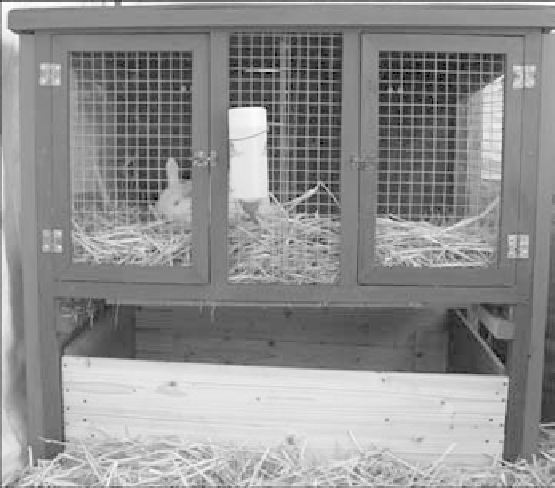Agriculture Reference
In-Depth Information
This rabbit hutch allows for droppings to fall right into the worm boxes below. This provides good sanitation
for the rabbit and helps make fabulous vermicompost at the same time.
(Photo courtesy of Chris McLaughlin)
Care and Maintenance
Rabbits need good-quality feed, especially when you're raising them as livestock. Both meat rabbits
and Angora rabbits need to have a good-quality feed to put on the weight for meat or to produce
high-quality wool. Lots of fiber and good protein will be needed. Rabbits can eat lots of the veggie
trimmings from your garden, plant thinnings, or kitchen scraps.
Many breeders keep a high-quality hay available, such as timothy grass or alfalfa hay, for fiber
and protein. Chewing on the hay helps keep their teeth trimmed down, as rabbit teeth will grow
continuously and need to be kept in check. In addition to the hay, they should be given enough
feed each day to meet their other dietary needs—anywhere from 4 to 8 ounces for young rabbits,
and up to 8 to 11 ounces of feed for pregnant does.
Some breeders will feed straight rabbit pellets that are 18 percent protein, while others will feed
only scraps and other vegetable matter from around the backyard farm. Most likely you'll find
yourself somewhere in the middle, feeding a portion of whatever fresh greens you have available
and filling in the gaps with pellets. Remove any of the fresh foods that haven't been eaten at the
end of the day. This prevents bugs and mold from growing.
Your rabbits should never be allowed to get too thin. Allowing your rabbits to get too obese can
cause a whole different set of problems. Handling your rabbit on a regular basis will help you judge













